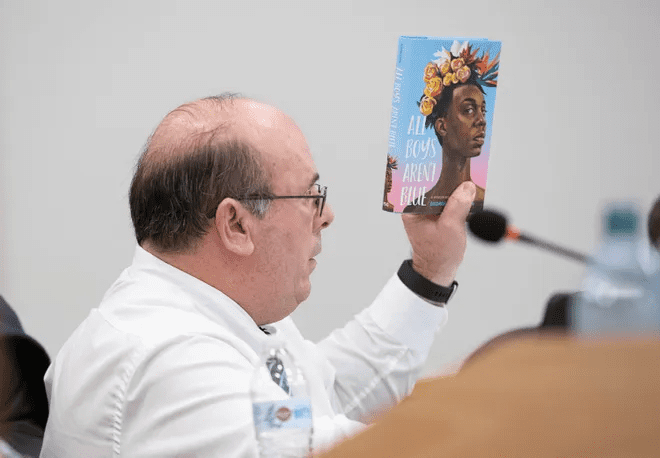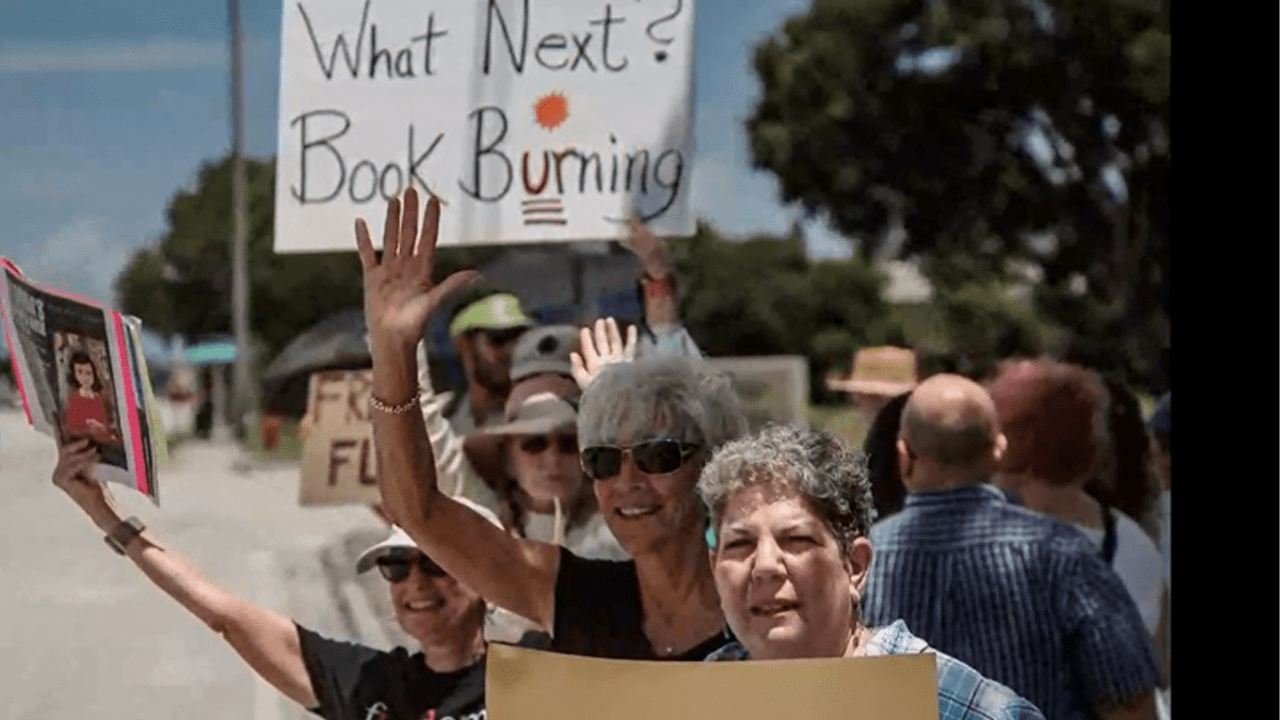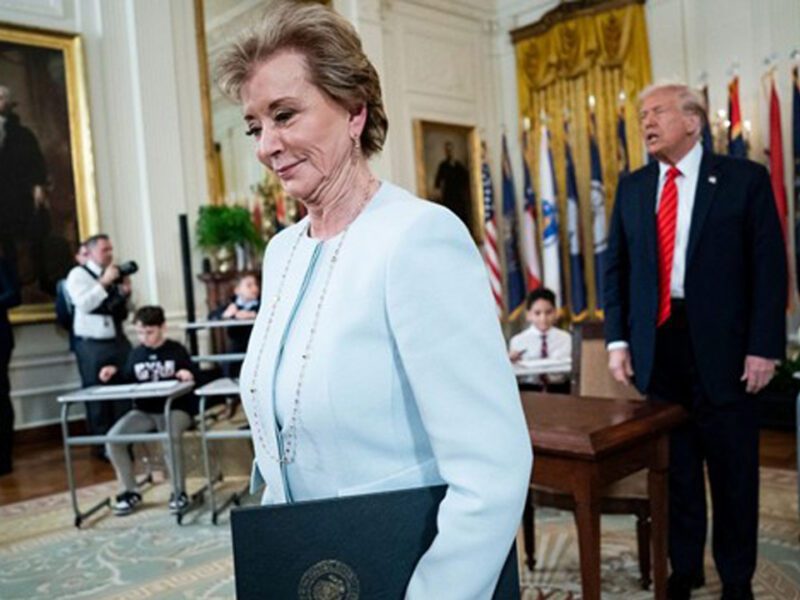Florida Board of Education approves more oversight of classroom materials with new rule
But the result of the appeal, if a parent wins, does not mean the book they object to will get taken off library shelves.
Tallahassee Democrat | Ana Goñi-Lessan | August 23, 2023
The Florida Board of Education voted on new rules that will allow parents to appeal school district decisions on what materials can be used in classrooms or school libraries.
But the result of the appeal, if a parent wins, does not mean the book they object to will get taken off library shelves.
“It’s not ‘Oh, they followed the policy, but I don’t I didn’t agree with it.’ It’s do they have a policy? Number one. Do they follow the policy? That’s it. It’s a very limited appeal,” said board chair Ben Gibson.

Kevin Adams makes a statement before voting whether or not to ban the book “All Boys Aren’t Blue” at the School District of Escambia County meeting in Pensacola on Monday, Feb. 20, 2023. The board voted 5-0 to ban the book from all Escambia schools. Gregg Pachkowski
The new rule, required under HB 1069, is another way for parents to control what their public school students can and cannot access in school and classroom libraries.
“The rules will also protect parental rights and will provide an alternate option to resolve disputes or objections between parents and the school districts,” said Paul Burns, Florida Department of Education chancellor for K-12 public schools.
Last year, Gov. Ron DeSantis signed the Curriculum Transparency Act, which requires districts to catalog every book they offer and put a formal review process in place for complaints. DeSantis, who is currently running to be the Republican nominee for president, touted the law as a way to increase parental involvement in education and prevent “indoctrination.”
After a district has gone through the review process, the parent of a child who attends a public school who objected to materials can request a special magistrate if they can document the district has not yet established procedures for material review or if the district did not follow its procedures. It will not automatically remove a book if a parent disagrees with a school district’s decision.
“Relief available to a parent under the special magistrate process does not include the removal of material or limiting student access to material,” the appeal form states.
It does not apply to instructional material that has gone through a public review and comment process, like textbooks, which follow an adoption process outlined in Florida statute. The rule does, however, apply to any material available to a student in a school library, on a reading list or used in a classroom.
The special magistrate will either be a judge with the Division of Administrative Hearings or a member of the Florida Bar in good standing, appointed by the commissioner of education.
The form adopted by the board Wednesday says the request to appeal will only be granted if all other procedures for resolution with the school district have been used.
Critics say the special magistrate process leaves out parents who object to books being taken out of school and classroom libraries.
“This is skewing the process and limiting it only to the book banners, only to those parents who want to see books censored and pulled from the shelves,” said Carlos Guillermo Smith, a senior policy advisor for Equality Florida, who is also running for state Senate after losing re-election in the House last year. “If we’re going to talk about parental rights. Let’s talk about parental rights. But we must respect the rights of all parents, including the rights of parents who want to make sure that their kid has access to a high quality public education and access to the materials that they have a right to access as well.”
School districts across Florida have purged titles from their library shelves since in fear of repercussions if they are found to have books in their classroom libraries deemed “harmful to minors.” A DOE media specialist training published in January said a teacher can be charged with a third-degree felony if materials are found harmful, pointing to a law previously on the books.
Parents rights groups continue to challenge books they deem “inappropriate.” For example, in Leon County this past spring, a mother submitted a complaint about the book “I am Billie Jean King,” and argued it should be pulled from elementary school shelves because the book explains the tennis legend is gay.
The objection was ultimately dismissed, as the Leon County School Board voted to keep the book on school shelves.
“This book is not about that she’s gay, the theme is about championing equality,” Vice Chair Rosanne Wood said. “And this is so important for our young people to be able to read and hear.”
FL-BOE_special-magistrate-form





